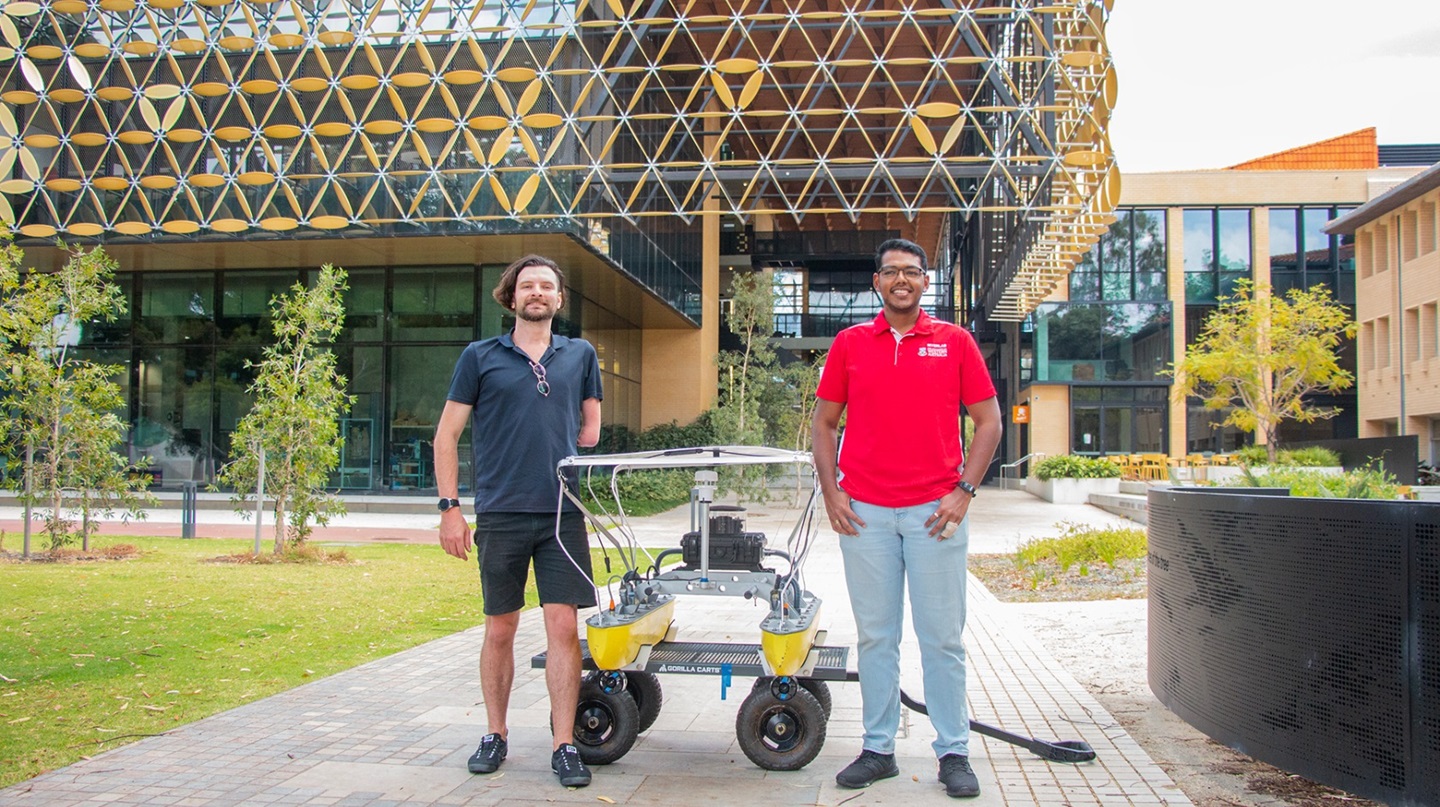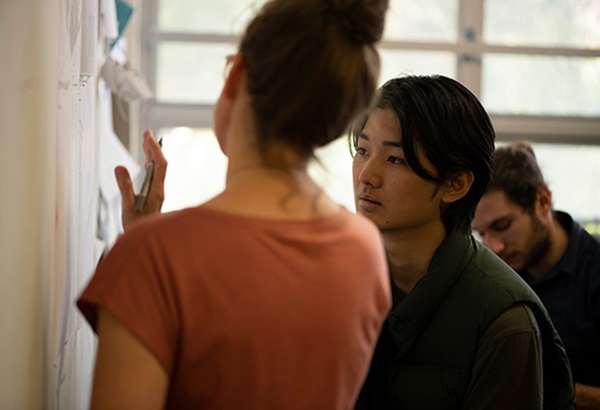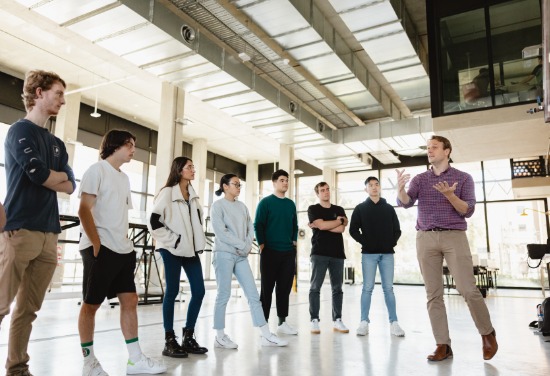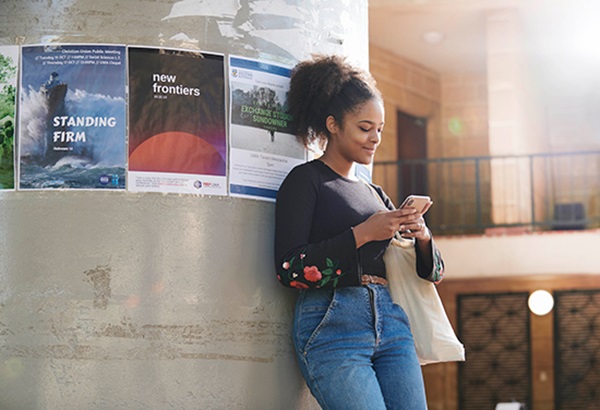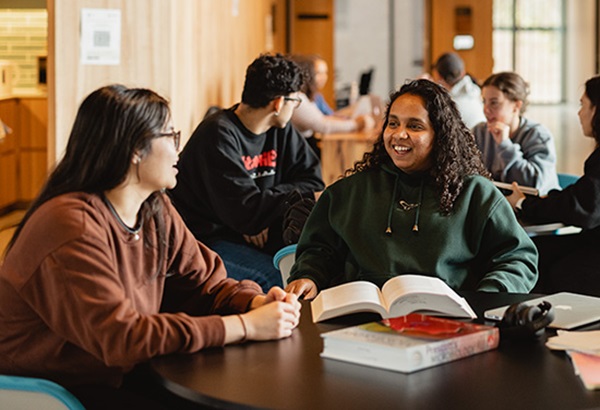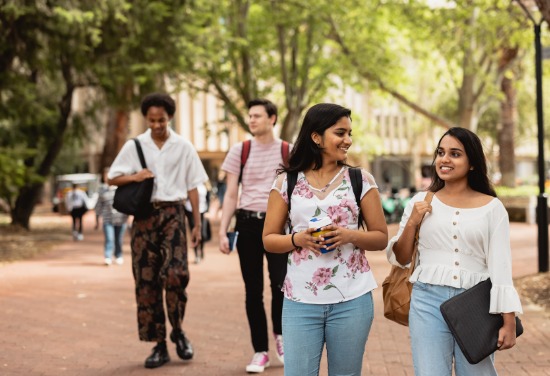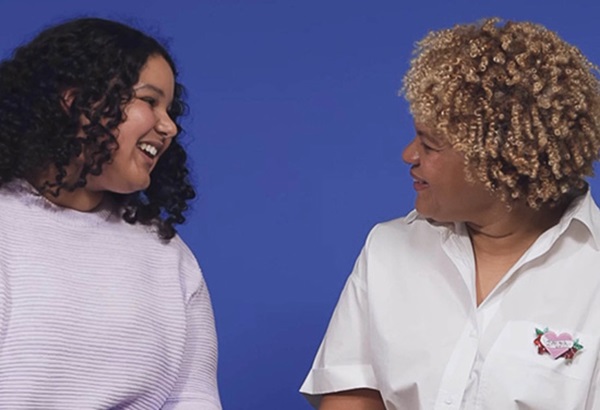UWA emerging engineers and STEM high schoolers have developed the concept of a solar powered boat to combat microplastics in waterways. We investigated further and discovered some seriously impressive collaboration underway!
Could a solar powered autonomous boat be part of a solution to combat the problem of microplastics in urban waterways?
Engineering students George John and Abby Tyers think so. As part of a RiverLab research project, the pair is investigating the potential of a solar powered floating filter to collect microplastics from the Swan River.
Hear from Abby.
George explains the significance of the solar powered autonomous boat.We are designing an automated microplastics monitoring process, to monitor the top layer of the Swan River where the majority of mobile microplastics are likely to be contained. This involves filtering microplastics out of the water and then analysing them for properties such as size, shape, and concentration.
Thanks to UWA’s automation and robotics Engineering team, who built the solar powered autonomous boat, we proposed a design which would allow us to attach a manta trawl (a net) behind it, which would collect microplastics as the boat travels along a preset path at a preset speed. Once the sampling is complete, we could detach the net, dry the contents and analyse them in the lab.
Highschool STEM students devise solution to global problem
The idea behind the solar powered floating filter didn't come from a high-tech engineering company, but from a group of year 7 students from Santa Maria College in Perth.
As part of UWA’s Emerging Engineers Competition, the team of five students competed against seven other schools to produce the winning prototype for 2021, which was selected as a research project for Engineering students.
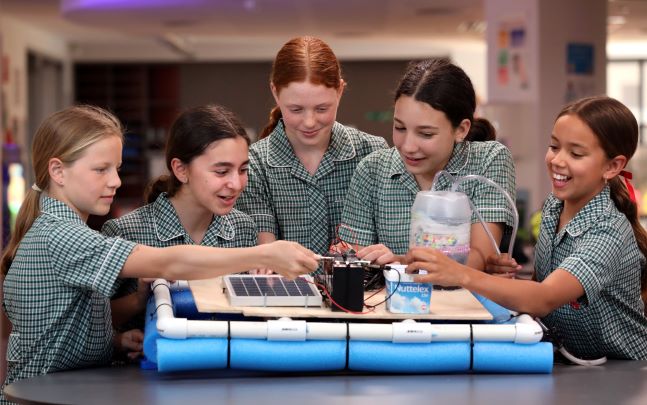
The competition is a collaboration between OceanWorks (a partnership between UWA and Woodside) and UWA Girls in Engineering. It encourages female and non-binary Western Australian high school students in years 2 – 10 to research, design and pitch a solution to a real-world problem in marine engineering.
Last year’s winners featured a group of Year 9 students from All Saints’ College for their innovative digestible plastics solution to reduce the impact microplastics have on marine and human life.
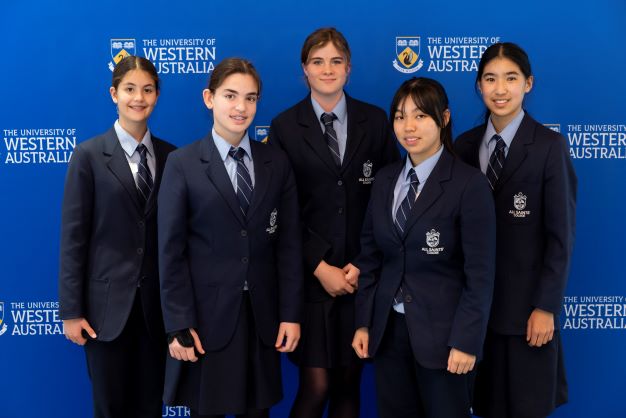
Outreach programs part of addressing greater gender diversity
It’s one of several targeted outreach programs offered by OceanWorks, as part of work to address the need for greater gender diversity in engineering.
Hear from OceanWorks Curator Nicole Austin.
OceanWorks recognises that diversity and communication are vital ingredients for innovative engineering. Our two flagship programs have been created to address the need for greater gender diversity in engineering. These programs are designed to engage girls and young women in the future challenges facing ocean engineers and explore opportunities to pursue a STEM career in the subsea and ocean-based industries.
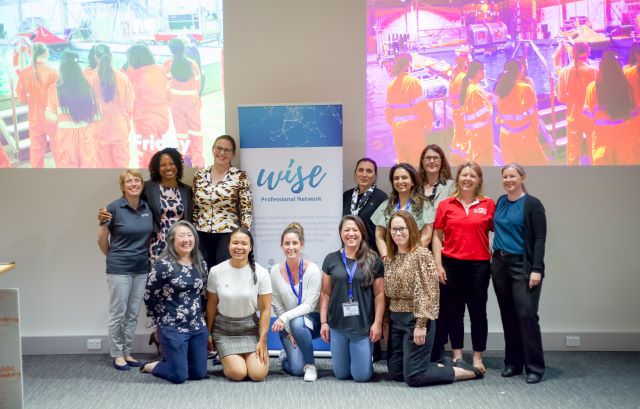
While George and Abby continue to research a solution to the problem of microplastics, it’ll be exciting to see what other innovations our emerging engineers will develop to overcome challenges of the future.
If the engineering projects of our students sparks your interest, you should explore your options to study Engineering at UWA where you can become an industry-ready engineer in just four years!

